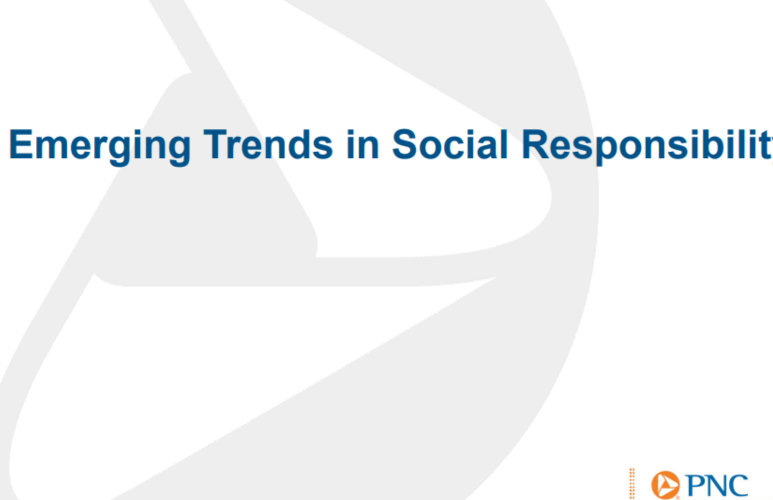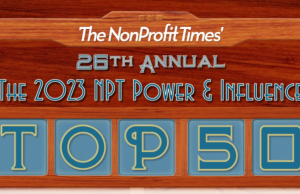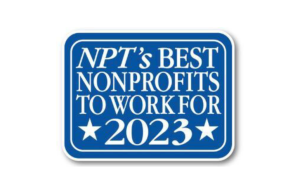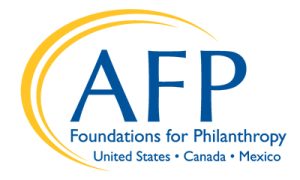Respondents from for-profit or commercial organizations acknowledge social responsibility concerns within their organizations at greater rates than those from nonprofits, according to a new survey. But any seeming disparity in results may be less the result of deficiencies in a nonprofit’s culture and more a tendency for social responsibility to already be ingrained in a nonprofit’s culture.
Nearly six in 10 (59%) of nonprofit leaders say social responsibility is a “very high” priority, with another 32% indicating it is a “somewhat high” priority, according to a new survey. But those percentages fall shy of the 70% of respondents from commercial enterprises who say it is a very important priority, while another 23% say it is “somewhat high,” according to Emerging Trends in Social Responsibility, a survey-based study from Pittsburgh-based PNC Institutional Asset Management.
Responses from nonprofits and commercial enterprises were broken out when those surveyed were asked their top social responsibility concerns. The top answer, environmental sustainability, was cited by nearly one-third of for-profit respondents (32%) but only 19% of nonprofits managers. Most other answers similarly showed for-profit respondents leading nonprofit respondents: 22% of the for-profit respondents cited diversity, equity and inclusion (DEI), but only 8% of the nonprofits did.
While the splits were not as dramatic, this trend held for many of the potential answers. Nonprofit respondents surpassed the for-profit respondents in only three categories: community development or outreach (10% of the nonprofits vs. 6% of the for-profits), equitable access to services or resources such as healthcare or education (7% of the nonprofits vs. 4% of the for-profits), and, positive impact on the community (4% vs. 3%).
These numbers might be skewed by the 23% of nonprofit respondents that either did not know what their top priorities were or did not answer the question (PNC did not break out these two answer options in its results), a percentage nearly three times as high as the 8% of the commercial organizations that did so.
“By the nature of who they are, the reason a nonprofit exists is generally somehow tied to social responsibility,” Amy Kuntz, head of PNC Institutional Asset Management’s West Region wrote in an email to The NonProfit Times. “They may be thinking of it differently (such as, ‘we run a food bank, and we’re busy focused on that mission.’) However, we also know by that these organizations are only naturally making a significant impact in society by, again, focusing on their own mission.”
Respondents are doing more than merely citing environmental sustainability as a top priority. Nearly eight in 10 (79%) of commercial respondents said their organizations have environmental sustainability programs or initiatives, compared with two-thirds (67%) at nonprofits. Those percentages should even up, however: 24% of nonprofits managers are planning such initiatives, compared with 12% of for-profit respondents.
Again, however, nonprofits and for-profit respondents might differ on what constitutes an environmental sustainability effort. Many of the targets listed appear to be internal focused as opposed to external or service focused, meaning they would be more applicable to operations in larger organizations, especially those that have manufacturing operations.
While responses were not broken out between for-profit and nonprofit respondents, overall 27% cited “being more eco-friendly or reducing their impact on the environment” as a target, and another 21% mentioned reducing carbon footprint or moving toward zero emissions. These targets were followed by waste reduction (9%), reducing energy consumption (7%) and increasing recyclables and compostables (6%).
The survey’s other findings include:
- 76% of respondents from for-profit organizations have a DEI program or initiative, compared with 59% of respondents from nonprofits;
- 54% of all respondents “strongly agree” that recent growth in environmental, social and governance-based investing can have a positive influence on corporate behavior, and another 37% “somewhat agree” it can have a positive influence; and,
- Across both categories, 99% of respondents said their organizations are committed to helping employees save for retirement, with 86% of the organizations making contributions to their employees’ retirement plans.
PNC Institutional Asset Management’s findings were based on 240 interviews conducted during December 2021 among financial executives in organizations with annual revenue in excess of $25 million. Those interviewed were evenly split between commercial and nonprofit organizations. More information about the survey, including results, is available here: https://pnc.mediaroom.com/PNCIAM-social-responsibility-survey












